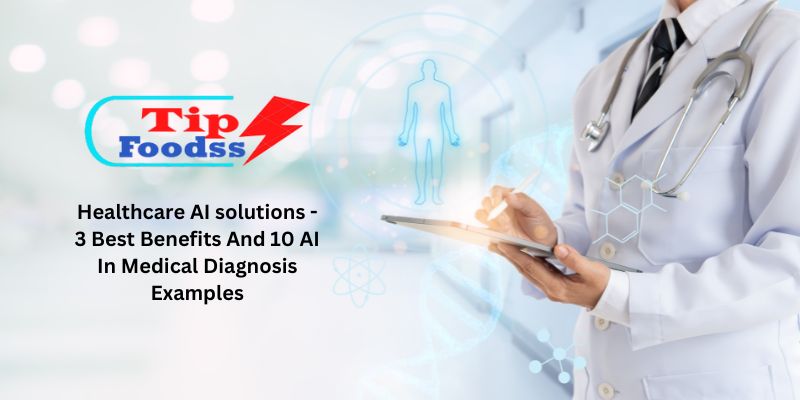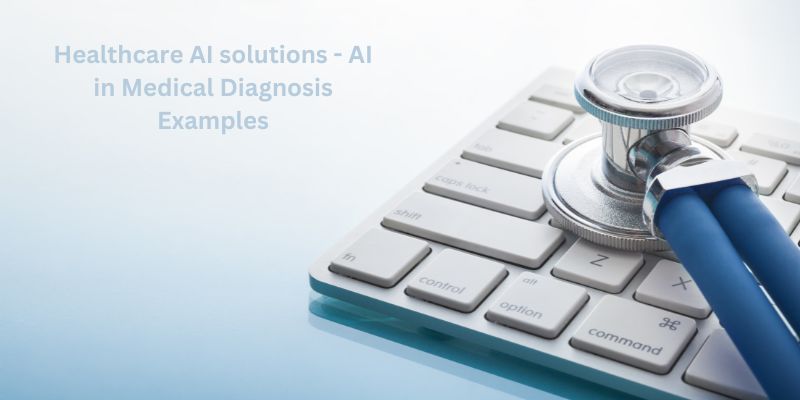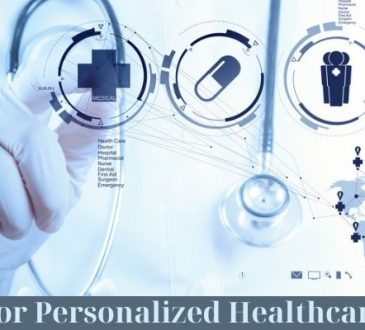Healthcare AI solutions – 3 Best Benefits And 10 AI In Medical Diagnosis Examples
By executing duties that would traditionally be handled by people, but in a fraction of the time and expense, artificial intelligence makes life easier for patients, physicians, and hospital managers. Finding novel connections between genetic codes, powering robots that aid surgeons, automating administrative work, customizing treatment choices, and many more applications of AI in healthcare are just a few examples. In this life article, with tipfoodss.com, let’s find out some useful information about healthcare AI solutions!
Contents
1. Healthcare AI solutions – Best Benefits
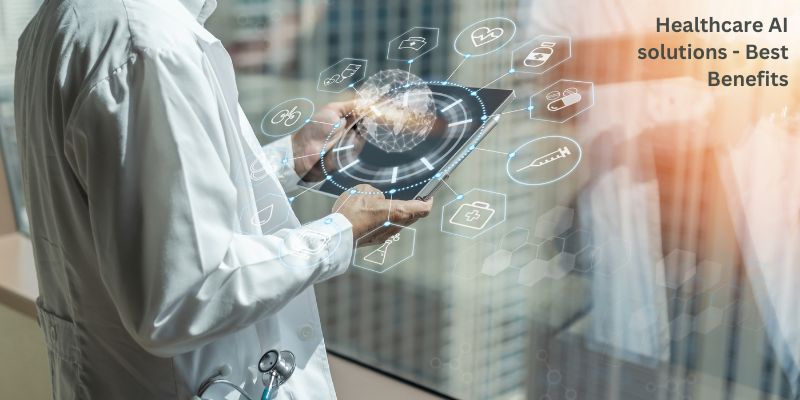
Giving users a user-centric experience – Healthcare businesses may use AI to quickly and correctly identify insights using massive datasets and machine learning, leading to enhanced satisfaction both internally and with the patients they serve.
Enhancing operational efficiency – By looking at data trends, artificial intelligence (AI) technology may assist healthcare organizations in making the most of their data, assets, and resources, enhancing workflows, procedures, and financial operations for clinical and operational workflows and clinical outcomes.
Bringing together different healthcare data – There are many different forms and fragments of healthcare data. Organizations may integrate heterogeneous data to create a more comprehensive picture of the people behind the data by employing AI and machine learning technology.
2. Healthcare AI solutions – AI in Medical Diagnosis Examples
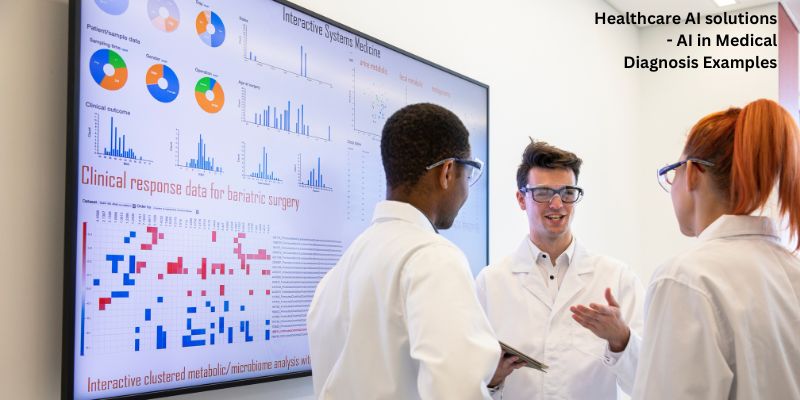
Around 400,000 hospitalized patients experience avoidable damage each year, and 100,000 of them pass afterwards. Given this, one of the most intriguing uses of AI in healthcare is its potential to enhance the diagnosis process. Human errors that are lethal can be caused by heavy case loads and insufficient medical histories. AI is resistant to these influences, therefore it can recognize and predict disease more promptly than the bulk of medical professionals. Here are some instances of businesses demonstrating how AI can lower mistakes and save lives.
Conclusion
Thanks to developments in machine learning and artificial intelligence (AI), the way healthcare is delivered is changing. Health institutions have accumulated enormous amounts of data, including information on demographics, claims, clinical trials, and medical records and photographs. Artificial intelligence (AI)-based technologies are perfectly suited for analyzing this data and revealing patterns and insights that people could not independently discover. Healthcare organizations may use AI’s deep learning algorithms to help them make better operational and clinical decisions and improve the caliber of the experiences they provide.
I hope you found this article about healthcare AI solutions useful. Have a good day!

